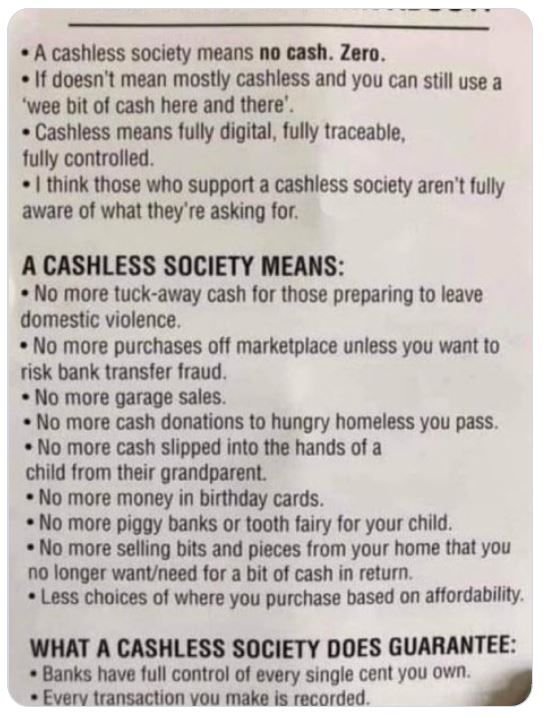this post was submitted on 06 Jun 2024
496 points (84.3% liked)
Privacy
833 readers
7 users here now
Privacy is the ability for an individual or group to seclude themselves or information about themselves, and thereby express themselves selectively.
Rules
- Don't do unto others what you don't want done unto you.
- No Porn, Gore, or NSFW content. Instant Ban.
- No Spamming, Trolling or Unsolicited Ads. Instant Ban.
- Stay on topic in a community. Please reach out to an admin to create a new community.
founded 2 years ago
MODERATORS
you are viewing a single comment's thread
view the rest of the comments
view the rest of the comments

No government would ever allow coins like Monero to become main forms of currency. The potential for abuse and tax evasion is just too high. They would sooner ban them outright. No legitimate business would accept them then.
Accepting random alt coins would also come with the expense of having to track them and their wallets separately, exchange costs, volatility, etc, so over time just a few will become generally accepted by businesses.
And yes, the most likely consequence of long-term crypto usage is that users will centralize into a few trusted platforms who will get the Lion's share of tokens and power.
It depends on what you mean by "allow" and "main form of currency". Afaik, in the US (and the rest of the west), at least, there are no laws regarding what form the medium of exchange should take for the exchange of goods and services. The dollar is simply the standard currency to make payments to the government. For example:
Is that just a statement of fact, or is that supposed to be an argument against Monero? I'm not sure what the point of that statement is. In any case, I don't see any issue with that outcome — it would simply be a market decision.
I'd say that this is still TBD, but yes centralized control is a concern, as it would break the current designs of cryptocurrencies (as far as I currently understand their designs, that is). Though, note that there is a difference between central ownership of coins in circulation, and central ownership of the network (of course depending on the design of the network — I feel that proof of stake would be vulnerable to this).